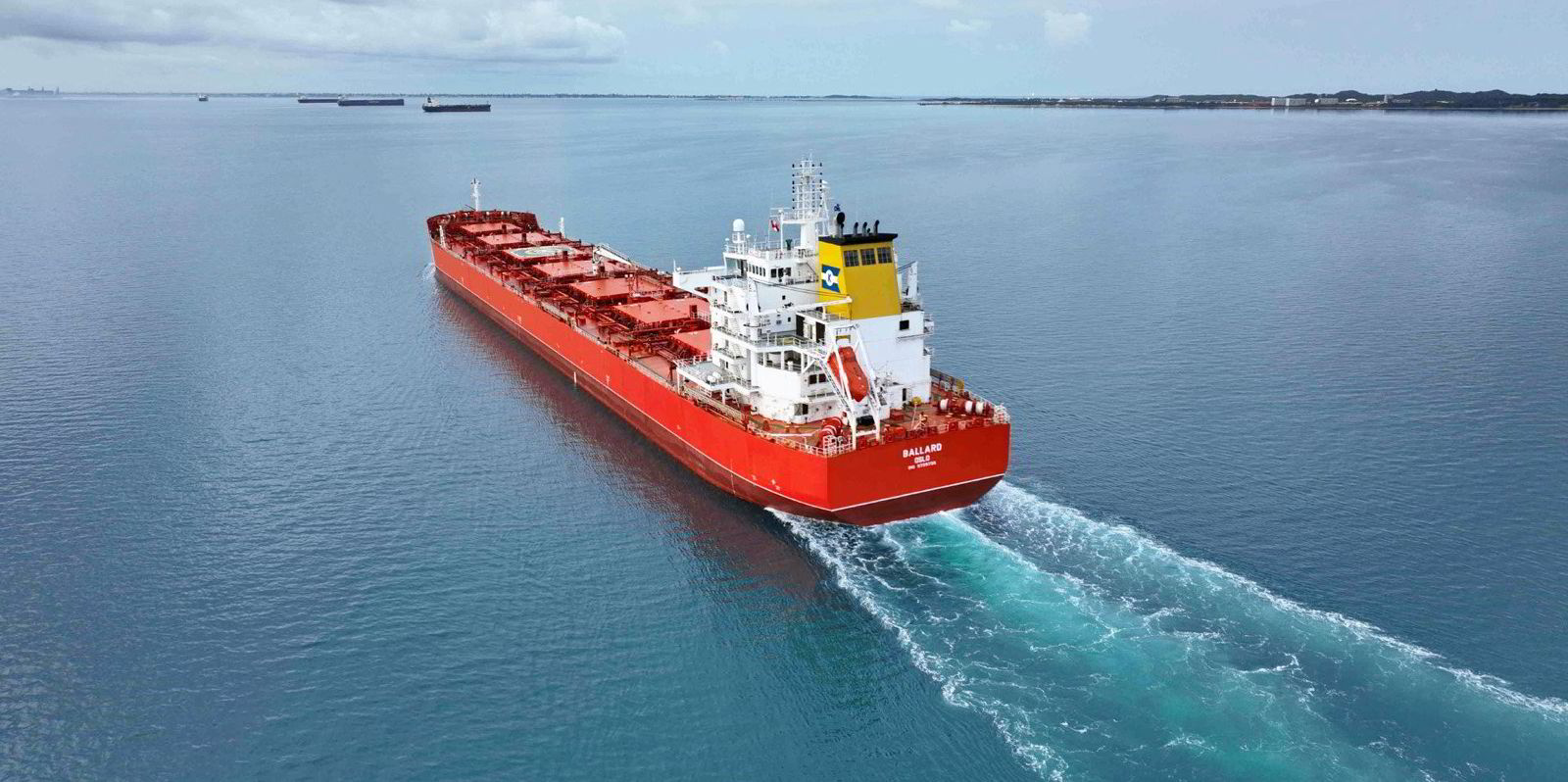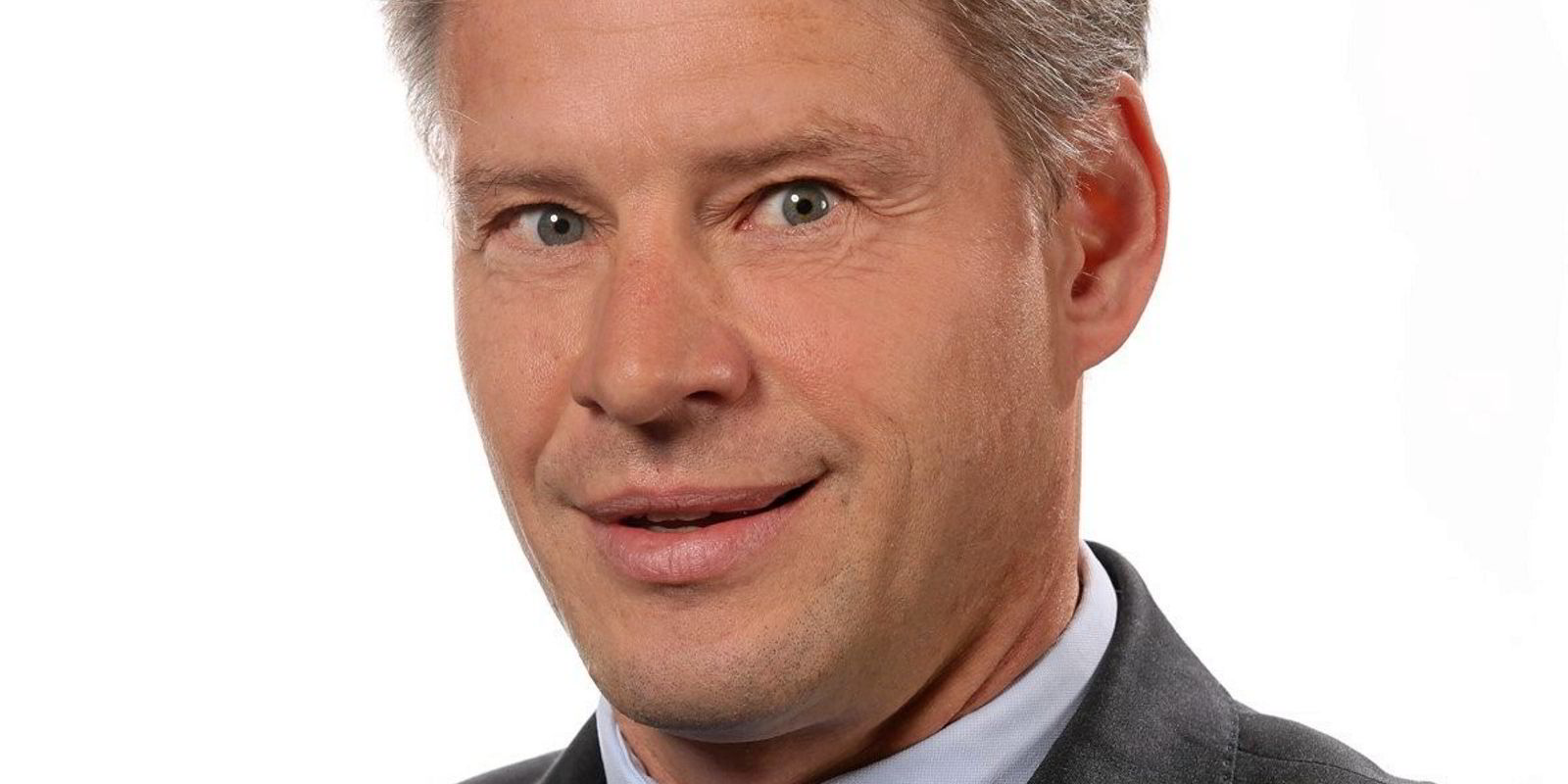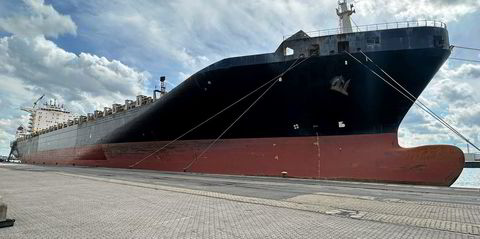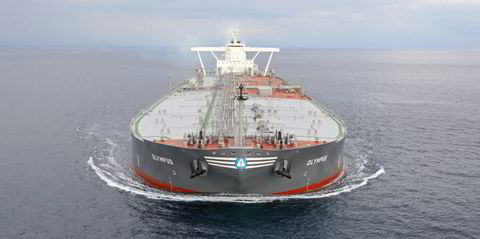Carbon levies will speed up the payback time of a major energy saving device retrofit of a Klaveness Combination Carriers vessel, the company argues.
The Norwegian company told analysts on a conference call that $4m was spent on the 80,500-dwt Cabu-type ship named Ballard (built 2017), which carries caustic soda and dry bulk.
The carrier is the first KCC vessel to adopt air lubrication, and one of the first in the tanker and bulker sectors, KCC said.
The Silverstream system uses air-release units along the flat bottom of the hull to create a uniform layer of microbubbles to reduce friction and save fuel and emissions.
Other efficiency retrofits for the vessel included a WE Tech shaft generator to convert rotational energy to electricity, a Becker Mewis Duct to improve propeller performance and the use of silicon paint.
Chief executive Engebret Dahm told the call: “We have tested this ship out during sea trials and one laden leg, and we are very pleased that the effect is approximately what we expected.”
The vessel cut fuel use by 15%.
KCC said it would take eight years to make the $4m back based on the current fuel price of $665 per tonne.
But this would fall to six years when next year’s European Union’s emissions trading scheme comes into force.
Owners would have to buy emissions allowances, or EUAs, boosting the cost to $930 per tonne.
Contract talks underway
Dahm also said KCC is renegotiating five contracts of affreightment for Cabus in 2024 at fixed rates.
“We’ve advanced well, but we’ve not concluded any yet,” the CEO added.
He declined to comment on exact rate levels but said: “We expect them to be somewhat lower than last year, which was historically high in the booming MR tanker market during the autumn.”
Dahm also said the dividend policy would remain the same, meaning KCC pays out 80% of free cash flow.
The CEO said future payouts would, therefore, depend on earnings.





